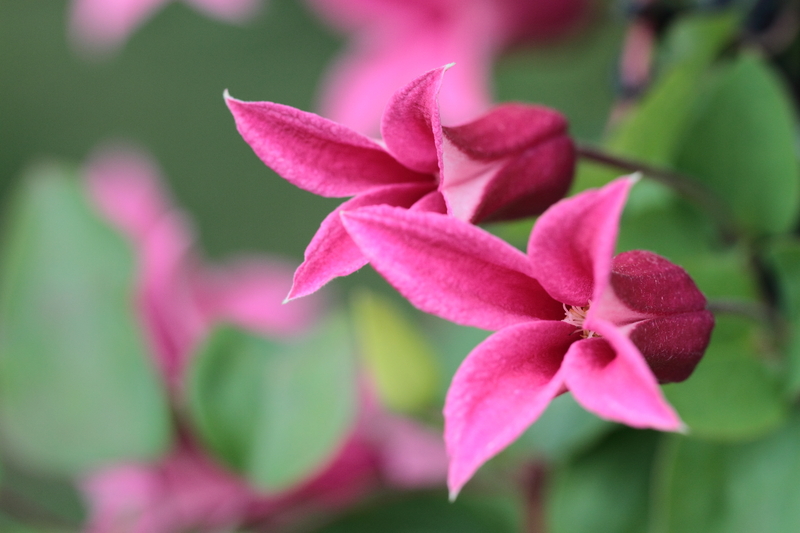Achieve gardening greatness with these 9 beginner tips
Posted on 28/05/2025
Achieve Gardening Greatness with These 9 Beginner Tips
Dreaming of a lush, vibrant garden but feeling overwhelmed as a new gardener? You're not alone! Gardening is more than a hobby--it's a relaxing escape and a chance to connect with nature. Whether you want to grow colorful flowers, fresh herbs, or delicious vegetables, a successful garden starts with the right foundation.
In this comprehensive guide, we'll explore 9 expert tips to achieve gardening greatness. From picking the perfect spot to mastering plant care, you'll find everything you need for a thriving garden. If you're ready to unleash your green thumb, keep reading for essential advice!
1. Evaluate Your Space for Gardening Success
Before you start planting, it's crucial to evaluate your garden space. Not every plant will thrive in every location, so understanding your environment sets you up for gardening greatness from the start.
Consider Light, Soil, and Weather
- Sunlight: Most vegetables and flowers require at least 6-8 hours of sunlight. Observe your outdoor area throughout the day to determine sun and shade patterns.
- Soil Quality: Test your soil for texture, pH, and nutrient levels. Many beginner gardeners overlook this step, but healthy plants start with healthy soil.
- Drainage: Avoid planting in areas where water pools after rain. Most plants abhor "wet feet" and perform best in well-draining soil.
Once you understand your growing conditions, you can choose the right plants and layout for gardening excellence.

2. Choose the Best Plants for Your Climate
To achieve beginner gardening success, select plants that naturally flourish in your region. Research which species are suited for your climate, soil, and sunlight levels.
Start with Easy, Resilient Choices
- Herbs: Basil, parsley, mint, and chives are hardy and perfect for new gardeners.
- Flowers: Marigolds, zinnias, and sunflowers are easy to grow from seed and add vibrant color.
- Vegetables: Lettuce, radishes, carrots, and tomatoes provide a tasty introduction to edible gardening.
Tip: Visit a local nursery and ask for recommendations--it's an excellent way to discover varieties proven to succeed in your area.
3. Prepare the Soil for Strong Roots
A nutrient-rich, loose soil base is the foundation of every great garden. Don't be tempted to skip this step--the right soil preparation can make or break your gardening journey.
Steps to Enrich Your Garden Soil
- Remove weeds and debris with a rake or hoe. Clear planting beds of grass, stones, and root systems.
- Loosen the soil to a depth of 12-18 inches using a shovel or garden fork. This improves aeration and drainage.
- Add compost or organic matter to enrich the patch with nutrients. Mature compost, shredded leaves, manure, or commercial soil blends all work wonders.
- Test and amend the soil pH as needed. Ideally, most garden plants thrive in soil with a pH of 6.0-7.0.
Proper soil preparation supports robust roots, vibrant blooms, and high yields as you pursue gardening greatness.
4. Master the Art of Planting
How and when you plant new greenery is as crucial as what you plant. Give seedlings their best start by following these expert-approved planting tips for beginners:
- Timing is everything: Consult seed packets or plant tags for best planting dates. Avoid putting tender plants outside before your region's last frost.
- Spacing matters: Crowded plants compete for water and sunlight. Ensure you follow recommended spacing guidelines for each species.
- Gentle handling: When transplanting seedlings, be careful not to disturb the roots. Water well after planting to help them settle in.
With a little patience and attention to detail, you'll lay the groundwork for garden greatness from day one.
5. Water Wisely for Healthy Growth
Consistent, deep watering is the secret to healthy gardens. Beginners often overwater or underwater their plants. Use these watering best practices for beginner gardeners:
Essential Watering Guidelines
- Water early in the morning to minimize evaporation and prevent fungal diseases.
- Aim to keep the soil evenly moist--but not soggy. A good rule is one inch of water per week, including rainfall.
- Use mulch around plants to retain moisture and reduce weeds.
- Water at the soil level, not from above, to avoid wetting leaves.
Smart watering techniques save time, conserve water, and support gardening excellence in every season.
6. Feed Your Plants for Epic Growth
Just like people, plants need proper nutrition to thrive. A regular feeding schedule helps beginner gardeners achieve robust, healthy specimens.
- Use slow-release, organic fertilizers to provide balanced nutrients over time.
- Supplement with compost tea or diluted liquid fertilizers for a gentle boost.
- Apply fertilizer according to package instructions--more isn't always better!
- Pay special attention during key growth stages, like flowering and fruiting.
Never underestimate the power of a consistent feeding routine--your garden will reward you with vibrant foliage and strong yields.
7. Embrace Mulching and Weeding
Mulch is a beginner gardener's best friend. It conserves water, suppresses weeds, and regulates soil temperature. Here's how to use mulch effectively and keep your garden tidy:
- Apply organic mulch like shredded bark, straw, or grass clippings around plants, leaving a two-inch gap around stems.
- Replenish mulch as it breaks down, usually once or twice each growing season.
- Weed regularly to prevent unwanted plants from stealing nutrients and water from your garden crops.
A weed-free, mulched garden bed looks immaculate and supercharges your gardening efforts!
8. Keep Pests and Diseases at Bay
Nothing derails a beginner's garden faster than pests or diseases. Achieve gardening greatness by learning to identify and manage problems early.
Organic Pest Control Tips
- Inspect plants regularly for holes, chewed leaves, or sticky residue.
- Encourage beneficial insects like ladybugs and lacewings to control aphids and other pests naturally.
- Remove diseased leaves or whole plants promptly to prevent spread.
- Handpick larger pests, such as caterpillars or beetles, when possible.
- Use organic sprays (such as neem oil or insecticidal soap) only as needed, following all label directions.
Preventative care, vigilance, and healthy soil go a long way in maintaining a thriving, pest-free garden.
9. Keep Learning and Celebrate Small Wins
The journey to gardening greatness never truly ends! Every season offers new lessons and opportunities to improve your skills. Don't be discouraged by the occasional setback or plant loss--mistakes are a natural part of becoming a master gardener.
- Read books, blogs, and watch gardening videos to expand your knowledge.
- Connect with other gardeners online or in your community for support and advice.
- Document your progress by keeping a garden journal with photos, notes, and favorite plant varieties.
- Celebrate every harvest, flower, and learning milestone--these successes make all your efforts worthwhile!
With curiosity and persistence, you'll continue to develop your gardening expertise year after year.
Bonus Tip: Enjoy the Journey!
Gardening isn't just about the destination--it's about the journey. Whether you're savoring your first homegrown tomato or watching a butterfly land on a zinnia, take time to enjoy the simple pleasures. As you follow these 9 gardening beginner tips, remember that every season brings new growth for both your plants and your skills.

Frequently Asked Questions for Beginner Gardeners
How often should I water my garden as a beginner?
Most gardens need about 1 inch of water per week, depending on rain and temperature. Check the soil: if it's dry 2-3 inches below the surface, it's time to water.
What are the easiest vegetables for starters?
Lettuce, radishes, beans, and zucchini are all easy vegetables for beginner gardeners to grow.
How can I tell if my plant has a disease?
Common signs include yellowing leaves, spots, moldy growth, and stunted development. Remove affected parts and use organic remedies if needed.
Final Thoughts: Grow with Confidence
Achieving gardening greatness is within your reach. With these practical tips, you'll be well on your way to growing healthy, beautiful plants right in your own backyard. Remember, every gardener starts as a beginner--what matters most is your willingness to learn, experiment, and enjoy the ride.
With patience, care, and these 9 tips for gardening greatness, you'll soon see your hard work blossom into a truly rewarding experience. Happy gardening!
Latest Posts
Nurturing a Green Space with Paws and Plants
Weed-Free Gardening: Unlock Three Powerful Control Methods
Achieve Stunning Garden Designs with Hedge Trimming

